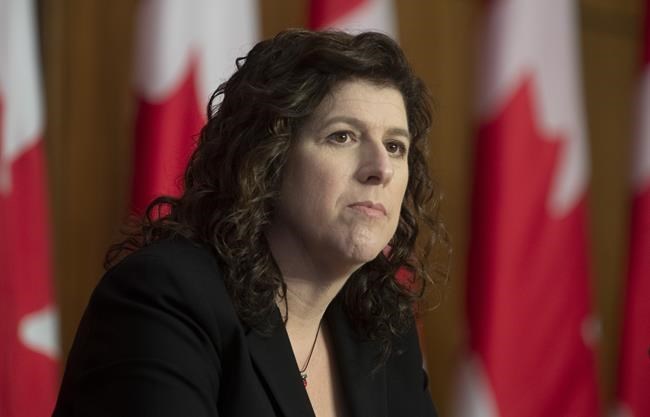OTTAWA — The federal government was unable to meet more than half of the demands for nurses and paramedics from Indigenous communities and organizations during the COVID-19 pandemic, says the auditor general in a report released Wednesday.
Karen Hogan told a news conference following the report release that Indigenous Services Canada had not addressed the ongoing shortage of health care workers in Indigenous communities.
"When you already start with a shortage of health care workers, the pandemic makes that gap even worse," she said.
"This long-standing issue, though, is one that does need to be addressed."
Hogan noted the department expanded access to contract nurses and paramedics to all Indigenous communities and streamlined its hiring processes.
"They were able to hire more nurses in the audit period than they had hired the year before," she said.
But with increasing demand, the department was unable to meet more than half of the 963 of the requests for such personnel to be made available.
Indigenous Services Minister Marc Miller told a virtual news conference that his department adapted and overcame challenges in procurement that existed across the government during the first few months of the pandemic.
"We did so as we reflected on the impact of the first wave, apprehending a very dangerous second wave for Indigenous communities," he said.
"That included a call-out for a very rare and important resource, and in fact the heroes of this pandemic, which is nurses and paramedics."
Hogan said the department employs primary health care workers to deliver direct health care services in 51 remote or isolated First Nations communities.
The report said nurses in these communities work out of nursing stations or health centres and are often the only health care providers working on site.
They work in pairs or small groups, often with little or no on-site support from other health care professionals, according to the report.
The department also provides funding to First Nations communities and First Nations health authorities so they can employ health care workers to offer services.
Hogan also found that Indigenous Services Canada didn't have fulsome data on how much personal protective equipment it had available when the pandemic began.
"The lack of complete and accurate data on the contents of the PPE stockpile made it difficult for the department to monitor its inventory levels and determine its needs," Hogan said in her audit.
The department also didn't have enough of some items, including gloves and hand sanitizer, but it was able adjust its approach to respond to the needs of the Indigenous communities.
"We found weaknesses in the way that Indigenous Services Canada managed its stockpile of PPE," she said.
Hogan said the department was able to step up with these supplies and ship them to Indigenous communities and groups when provinces and territories were unable to do so.
"The demand didn't really hit Indigenous Services Canada in a significant way until the bulk procurement had started federally," she said.
"Indigenous Services Canada was receiving two per cent of all bulk procurements. We found throughout the audit that they were able to meet all of their requests that they received from Indigenous communities throughout the pandemic."
Indigenous Services Minister Marc Miller said earlier Wednesday that more than 75 per cent of Indigenous adults have now received at least one dose of COVID-19 vaccine.
Miller said Indigenous people living in Manitoba, which has the highest rate of new coronavirus infections in the country, can now book their second vaccine shot.
He said there are about 741 active cases in First Nations communities.
Dr. Tom Wong, chief medical officer of public health at Indigenous Services, said active case counts have dropped drastically over the past couple months.
This report was first published by The Canadian Press on May 26, 2021.
---
This story was produced with the financial assistance of the Facebook and Canadian Press News Fellowship.
Maan Alhmidi, The Canadian Press



